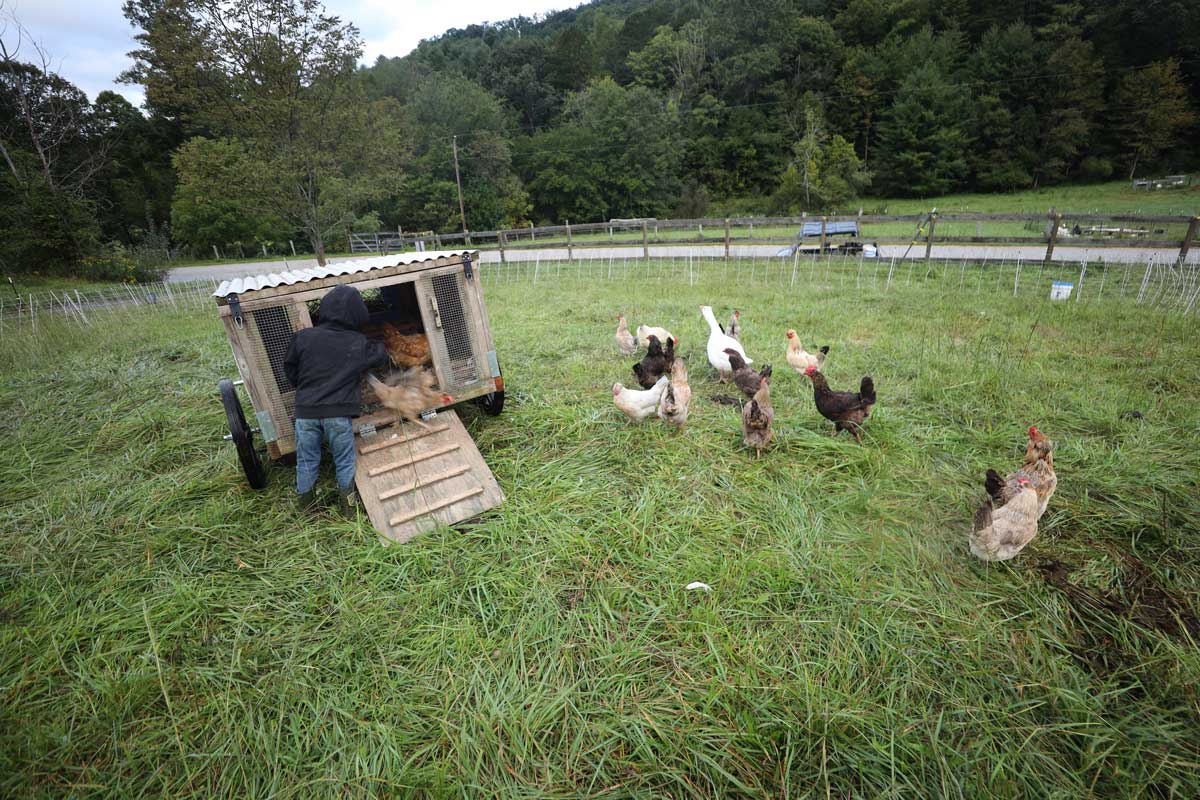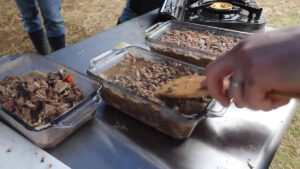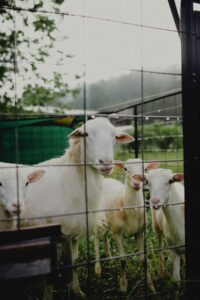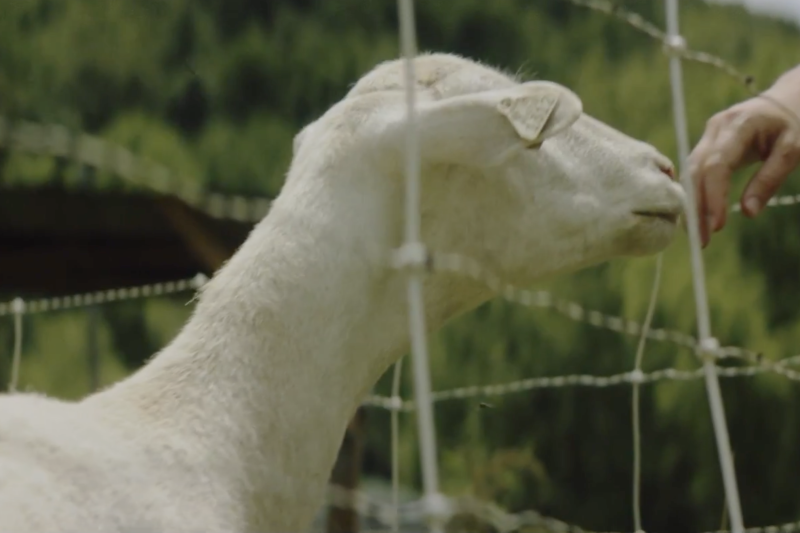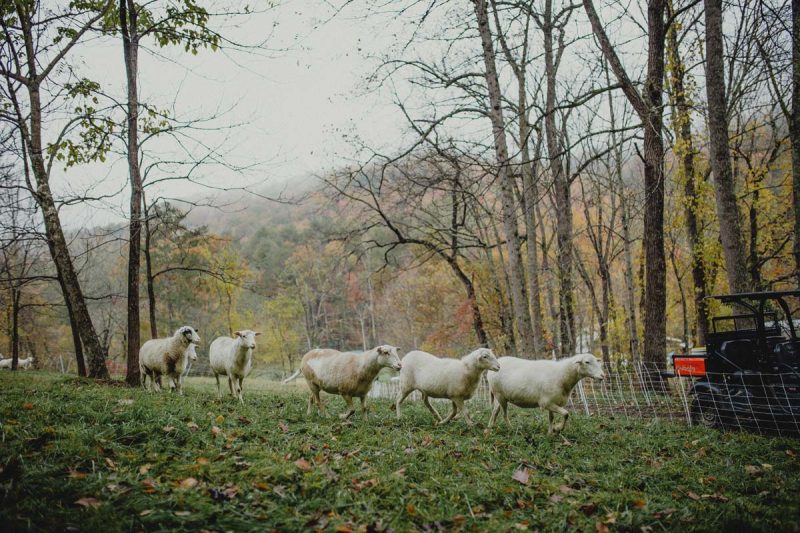Once you are confident you have your chickens safe from predators, you can put chickens to work tilling up garden spaces, use chickens to control pests in orchards, or even increase your flock size with natural breeding practices.
This guide includes my best protection tips.
Importance of Protecting Chickens From Predators
We get asked approximately 87 questions a day about backyard chickens, but the number one question is always, “How do you keep chickens from getting killed?”
The first thing you need to know is that everything eats chicken. You aren’t the only one who loves that delicious meat. You have your fox, raccoon, possum, skunks, weasels, and even pigs can be predators. Panthers, hyenas and man’s best friend (dogs) also love the taste of chicken.
Did you know that a chicken will take another chicken down if it’s injured or sick? Yep, even chickens love the taste of chicken.
A giant predator on our homestead is the hawk. These predators can kill and carry off an adult chicken with ease. Owls can do the same thing at night. Regardless of your giant predator, there are things you can do to cut down on chicken loss.
Know Your Area’s Predators
To keep your backyard flock safe from predators, you must first know who the predators are. If you’re just getting started raising chickens, this may mean asking your local extension office or neighbors.
You will find many predators like raccoons and hawks across the country, but your area may have additional predators to be aware of, like the weasel.
A weasel can gain access through a mouse-sized hole in a wire fence, so if you have weasels in your area, it will be essential to check for any small holes constantly.
Birds of prey are protected, so you cannot harm a hawk. They are aerial predators with excellent eyesight and are extremely fast, making them a deadly predator.
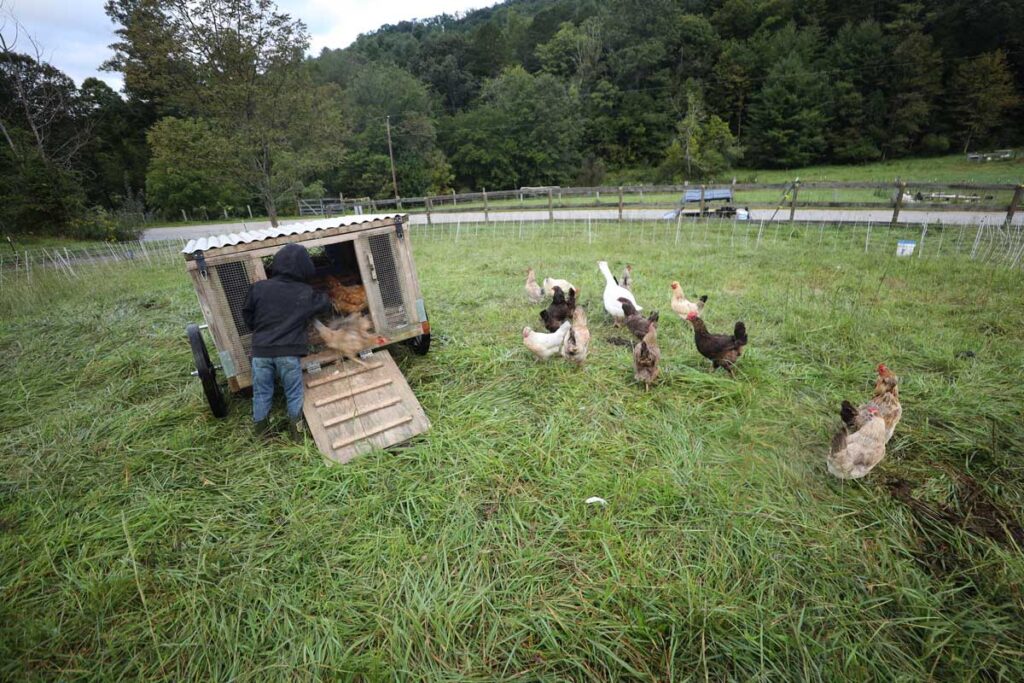
Protecting Chickens From Predators
Losing chickens can be very upsetting. Understanding your area’s predators and how those predators behave is the first part of the battle. The second part is prevention.
This list of ways to predator-proof your chickens will take care of about 98% of your chicken loss, and the other 2% will be you doing your part.
Shut the Coop at Night
Always remember to shut your coop at night. I’ve forgotten and come out a couple of hours late to guts everywhere. Even if you have a chicken run around your enclosure, shutting your chicken coop at night is a second defense against predators.
You wouldn’t leave your front door open while you sleep, and it’s just as important to shut your flock up at night.
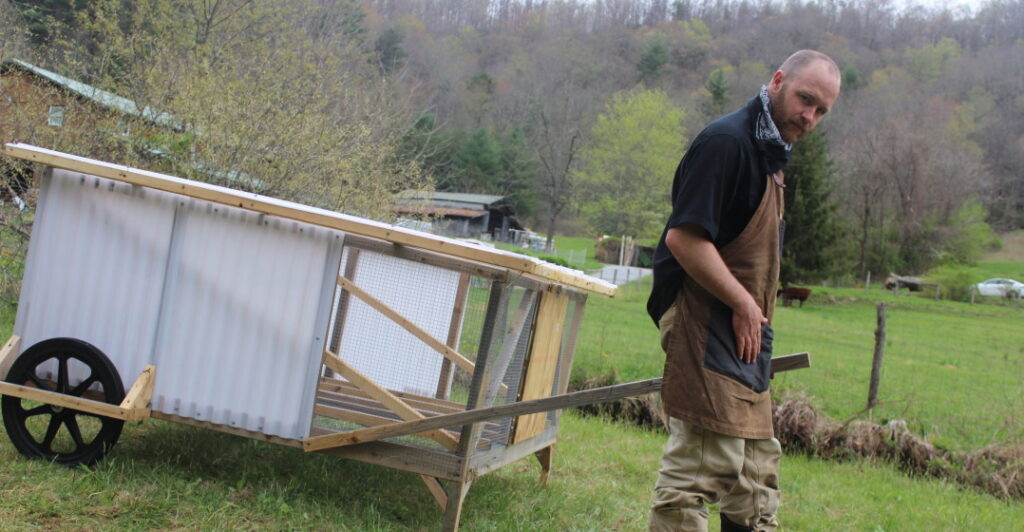
A Good Barrier
It’s essential to know the design necessities of a good chicken coop. Never have more than a one-inch opening into your enclosure. There’s no way for a raccoon or a neighborhood dog to reach into your coop if there aren’t any openings more significant than an inch.
If you live in an area with hawks and owls as your main predators, make sure that your flock has an overhead barrier for their coop and run. You can achieve an overhead barrier by building a chickshaw, a chicken tractor or using overhead chicken wire or ½ inch hardware cloth.
A tarp can be strung overhead as a barrier and it will also provide shade for your chickens.
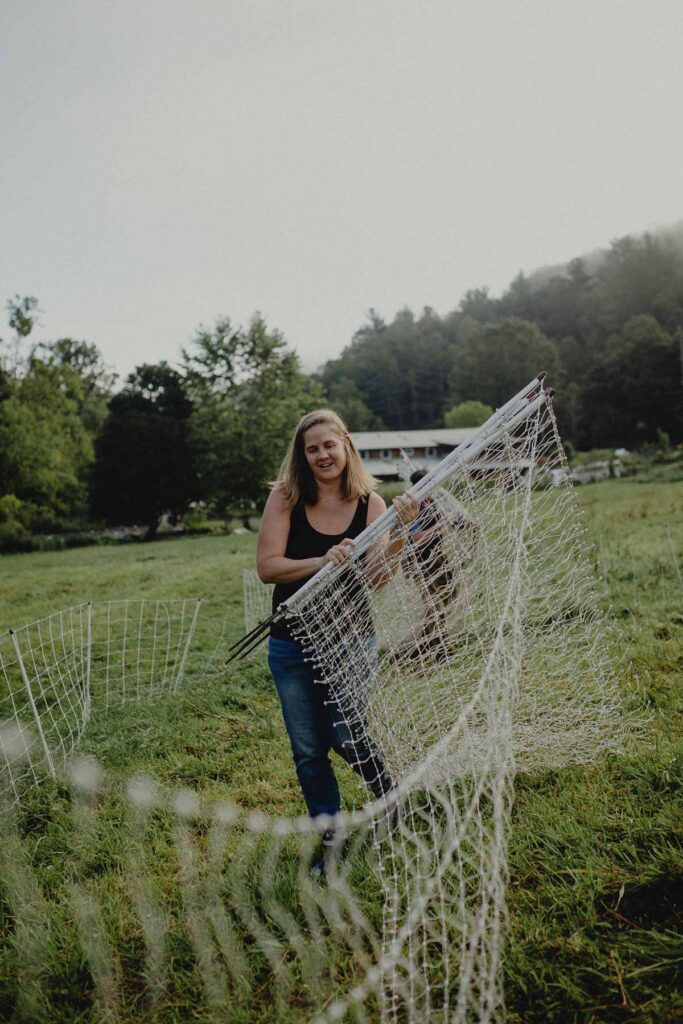
Electric Fencing
Always keep your free-range chickens inside an electric poultry net. Learning how to set up electric fencing on your homestead is simple. We use electric poultry netting from Premier One to keep our chickens safe, and find this system superior to standard welded wire fencing.
Make sure the net goes to the ground to keep small animals like weasels from sneaking underneath. Also, always turn on your fence so that it’s hot!
Electric poultry net has small hexagonal gaps which prevent predators from reaching through or entering your coop. It can also be used over a chicken run to avoid attack from aerial predators.
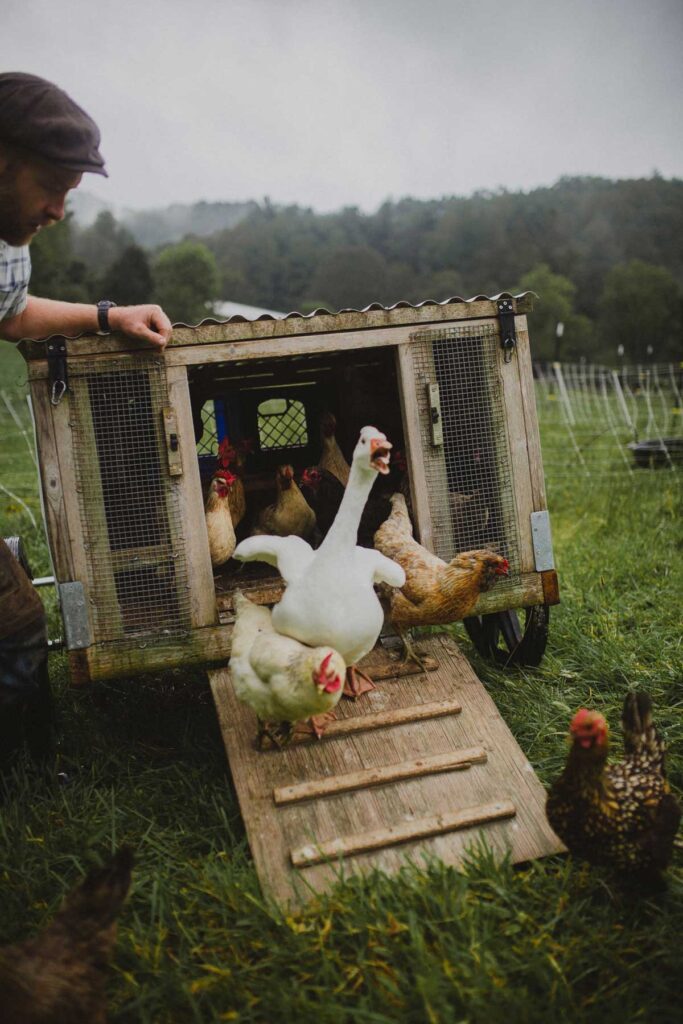
Guard Goose
The best animal to protect your chickens is a guard goose. We especially love the Roman Tufted Goose because of its great hair-do!
Nothing will mess with a guard goose during the day and night because geese can be very aggressive! They will keep predators at bay by flapping their wings, squawking and hissing.
To make a guard goose effective, raise him with the chicks, and he will develop a strong instinct to guard and protect your chickens. Geese are territorial and can train to protect your flock, like guard dogs.
Even if the predator is large and your goose can’t fight it off alone, he will make enough noise to get your attention.
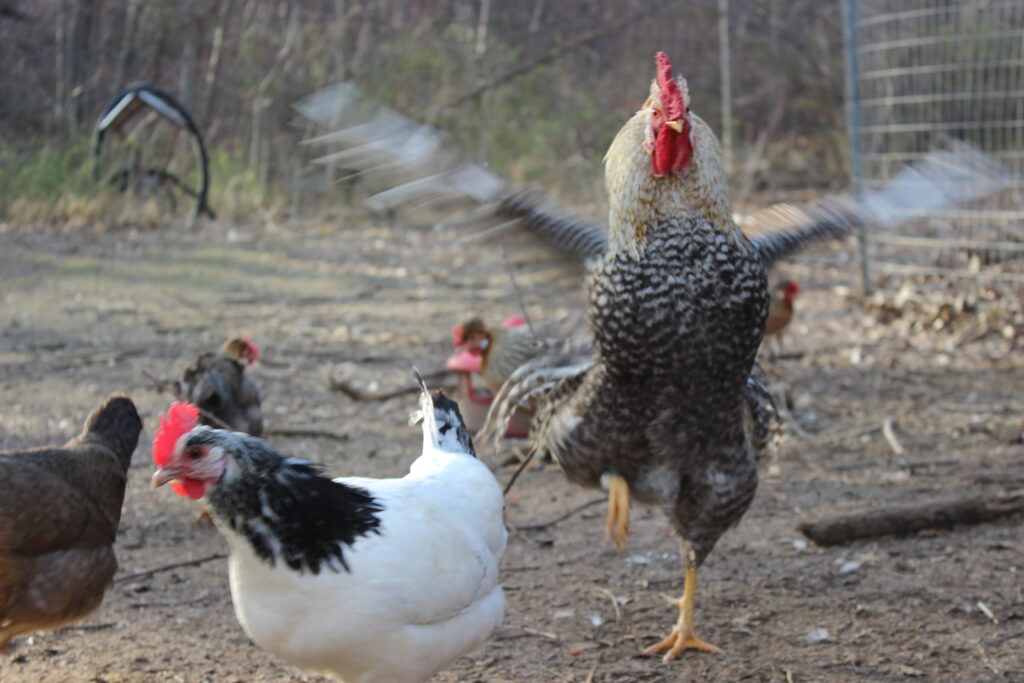
Consider Keeping a Rooster
If you live in the city, you may be unable to keep a rooster because of noise ordinances. Your neighbors may not appreciate waking at the crack of dawn to the noise of a crowing rooster.
However, if you live in the country, keeping a rooster is a common occurrence. A good rooster will work hard to protect the hens, even giving his own life to save theirs.
Lights
A motion-activated flood light will keep most nocturnal predators away from your chickens. Install the light to shine directly onto your coop. The light will scare off the predators and alert your chickens to a possible threat.
With these tips you should be able to say goodbye to predators stealing your precious flock. For more great tips on raising chickens, check out the other blog posts below.
Other Posts You May Enjoy
- Basics of a Chicken Coop-Design Necessities
- Backyard Chickens-How to Get Started
- Using Chickens for Garden Pest Control & Disease in Orchards
- Raising Meat Chickens
- Five Stages for Success With Breeding Chickens
- Chicken Coop Ideas-5 Methods That Work
- Using the Permaculture Approach for Your Chicken Flock
- How to Butcher a Chicken

